


Books in series

Doctor Who
The Beginning
2013

Doctor Who
Frayed
2003

Doctor Who
The Sleeping Blood
2015
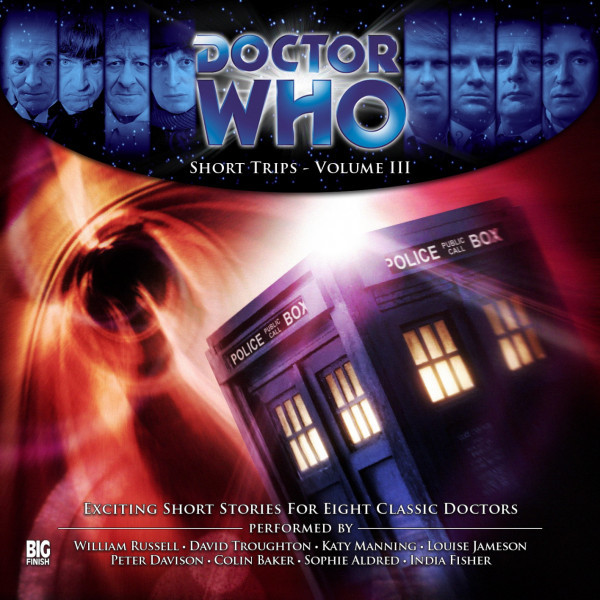
Doctor Who - Seven to One
2011

A Big Hand for the Doctor
2013

Doctor Who
Quinnis
2010

Doctor Who
Time and Relative
2001

Doctor Who
Hunters of Earth
2013

Doctor Who
An Unearthly Child
1981

Doctor Who
The Edge of Destruction
1988

Doctor Who and the Daleks
1964

Marco Polo
1985

Doctor Who
The Sorcerer's Apprentice
1995

Doctor Who
The Age of Endurance
2016

Doctor Who and the Keys of Marinus
1980

Doctor Who
The Fragile Yellow Arc of Fragrance
2010

Doctor Who
The Aztecs
1984

Doctor Who
The Sensorites
1987

Doctor Who
The Transit of Venus
2009

Doctor Who
1987

Rise and Fall
2023

Doctor Who
The First Doctor Adventures, Volume 1
2017

Doctor Who
The First Doctor Adventures, Volume 2
2018

Doctor Who
The First Doctor Adventures, Volume 3
2019

Doctor Who
The First Doctor Adventures, Volume 4
2020

The First Doctor Adventures
Volume 5
2021

Doctor Who
The Outlaws
2022

Campaign
2000

Doctor Who
Farewell, Great Macedon
2010

Doctor Who
The Masters of Luxor
2012

Doctor Who
The Library of Alexandria
2013
A Star is Born
2025

Doctor Who
The Flames of Cadiz
2013

Doctor Who
A Small Semblance of Home
2018
Doctor Who
E is For...
2019

Doctor Who
Domain of the Voord
2014
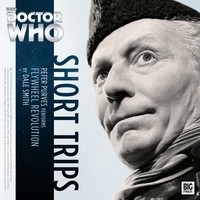
Doctor Who
Flywheel Revolution
2015

Doctor Who
City at World's End
1999

Doctor Who
Witch Hunters: The History Collection
1998

Doctor Who
Here There Be Monsters
2008

Doctor Who
1990

Doctor Who
The Time Travellers
2005

Doctor Who and the Dalek Invasion of Earth
1977

Doctor Who
Venusian Lullaby
1994

Doctor Who
The Revenants
2012

Doctor Who
The Rescue
1987

Doctor Who
Byzantium!
2001

Doctor Who
1987

Doctor Who
The Eleventh Tiger
2004

Doctor Who and the Zarbi
1965

Doctor Who
The Fifth Traveller
2016

Doctor Who
The Dark Planet
2013
1963
2025

Doctor Who
The Rocket Men
2011

Doctor Who and the Crusaders
1966

Doctor Who
The Space Museum
1987

The Plotters
1996

Doctor Who
The Sleeping City
2014

Doctor Who
The Unwinding World
2015
Doctor Who
Daybreak
2019

Doctor Who
The Doctor's Tale
2014

Doctor Who
Daleks: The Chase
1989

Doctor Who
The Time Meddler
1987

Doctor Who
Frostfire
2007

Doctor Who
The Bounty of Ceres
2014

Doctor Who
The Empire of Glass
1995

Doctor Who
The Ravelli Conspiracy
2016
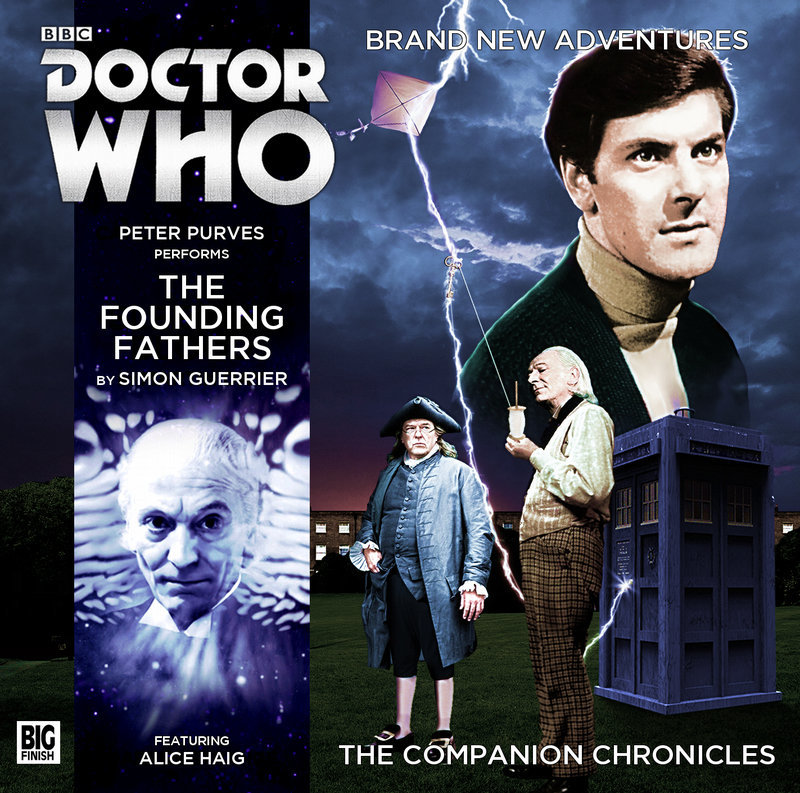
Doctor Who
The Founding Fathers
2015
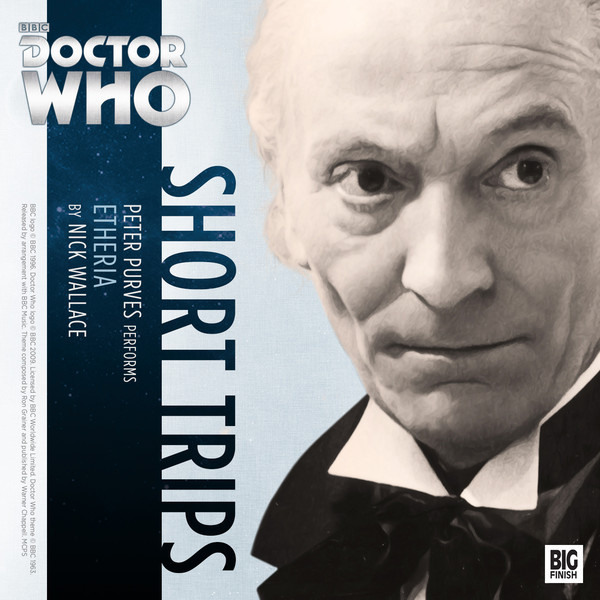
Doctor Who
Etheria
2015

Doctor Who
Upstairs
2013

Doctor Who
The Suffering
2010

Doctor Who
Galaxy Four
1985

Doctor Who
The Myth Makers
1985

Daleks
Mission to the Unknown
1989

Doctor Who
The Anachronauts
2012

Doctor Who
Men of War
2018

Doctor Who
An Ordinary Life
2014

Doctor Who
The Guardian of the Solar System
2010

Doctor Who
Home Truths
2008

Doctor Who
The Sontarans
2017

Daleks
The Mutation of Time
1989

Doctor Who
The Perpetual Bond
2011

Doctor Who
The Cold Equations
2011

Doctor Who
The First Wave
2011

Doctor Who and the Invasion from Space
1966

Doctor Who
O Tannenbaum
2017

Doctor Who
Peace in Our Time
2019

Doctor Who
Out of the Deep
2020

Doctor Who
1966

Doctor Who
Salvation
1999

Doctor Who
The Ark
1986

Doctor Who
The Celestial Toymaker
1986

Doctor Who
Mother Russia
2007

Doctor Who
This Sporting Life
2016

Doctor Who
Bunker Soldiers
2001

Doctor Who
Return of the Rocket Men
2012

Doctor Who
The War to End All Wars
2014

Doctor Who
The Savages
1986

Doctor Who
The Horror At Bletchington Station
2016

Doctor Who
1996

Doctor Who
The War Machines
1989

Doctor Who
The Smugglers
1988
Doctor Who
The Bonfires of the Vanities
2017

Doctor Who
Ten Little Aliens
2002

Doctor Who
Falling
2017

Doctor Who and the Tenth Planet
1976
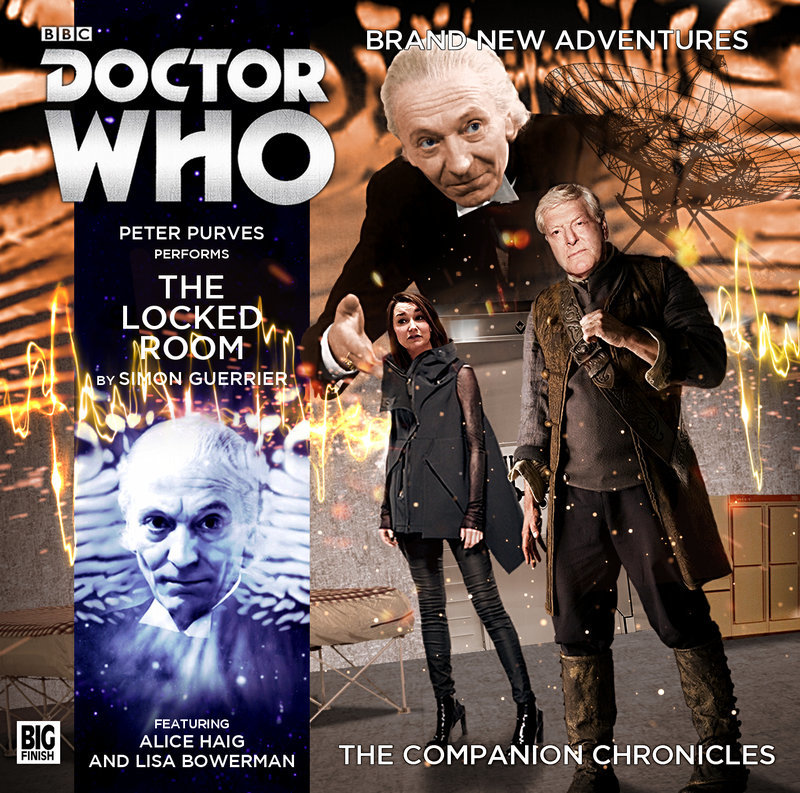
Doctor Who
The Locked Room
2015
Authors

Gerry Davis was a British television writer, best known for his contributions to the science-fiction genre. He also wrote for the soap operas Coronation Street and United!. From 1966 until the following year, he was the script editor on the popular BBC science-fiction series Doctor Who, for which he co-created the popular cybernetic monsters known as the Cybermen, who made several appearances in the series over the following twenty-two years. His fellow co-creator of these creatures was the programme's unofficial scientific adviser Dr. Kit Pedler, and following their work on Doctor Who, the pair teamed up again in 1970 when they created a science-fiction programme of their own, Doomwatch. Doomwatch ran for three seasons on BBC One from 1970 to 1972, and also spawned a novel written by Davis and Pedler, and later a cinema film and a 1999 revival on Channel 5. Davis briefly returned to writing Doctor Who, penning the original script for Revenge of the Cybermen, in 1975, though the transmitted version was heavily rewritten by the then script-editor Robert Holmes. He also adapted several of his scripts into novelisations for Target Books. With Kit Pedler, he wrote the science-fiction novels Mutant 59: The Plastic Eaters (1971), Brainrack (1974) and The Dynostar Menace (1975). In the 1980s Davis worked in America both in television and on feature films such as The Final Countdown (1980). In late 1989 he and Terry Nation made a joint but unsuccessful bid to take over production of Doctor Who and reformat the series mainly for the American market. Gerry Davis died on August 31 1991.

Farhi was born in Ankara, Turkey, in 1935. Farhi received B.A. in Humanities from Robert Academy, Istanbul, in 1954. He came to the UK the same year and trained at The Royal Academy of Dramatic Art, graduating in 1956 and settling in London. After a brief career as an actor, he took up writing. Farhi has written several novels, including Children of the Rainbow and Journey through the Wilderness. Children of the Rainbow has received two prizes: the “Amico Rom” from the Associazione Them Romano of Italy (2002); and the “Special” prize from the Roma Academy of Culture and Sciences in Germany (2003). The French edition of Young Turk (Jeunes Turcs) received the 2007 Alberto Benveniste Prize for Literature. His poems have appeared in many British, US and European publications and in the anthology of 20th century Jewish poets, Voices Within the Ark (Avon, US, 1979). He has also published short stories in anthologies and magazines in the UK, the US and Poland. He has written many television scripts; a film, The Primitives; and a stage play, From The Ashes of Thebes. Farhi's essay, "The Courage To Forget", appeared in Index on Censorship (Vol.24, No.2, 2005). "God Save Us From Religion", is included in the collection, Free Expression is No Offence (edited by Lisa Appignanesi, published by Penguin Books, 2005). "All History is the History of Migration", given at the “Know Your Place?” Conference in November 2005, was also published by Index on Censorship in 2006. Farhi's works have been translated into Arabic, Dutch, French, Galician, German, Greek, Hebrew, Italian, Polish, Romanian and Turkish. Farhi has donated part of his personal library, consisting over 19.000 books, to Boğaziçi University. For over twenty-five years Farhi has campaigned, from the ranks of English PEN Writers in Prison Committee (WiPC), for writers persecuted and/or imprisoned by repressive regimes. Between 1994-1997, he served as Chair of the English WiPC; and between 1997–2000, as Chair of International P.E.N.’s Writers in Prison Committee. In November 2001, he was elected a Vice President of International PEN. He was appointed as a Member of the Order of the British Empire (MBE) in June 16, 2001, in the Queen’s Birthday Honours List, for services to literature. He is a Fellow of both The Royal Society of Literature and The Royal Geographical Society. Farhi also briefly worked on the BBC science fiction adventure TV series Doctor Who during its early stages of production in 1963. Farhi was married to the late Nina Farhi (née Gould), a psychoanalytic psychotherapist, and has a stepdaughter, Rachel Sievers, a speech therapist. He is related to the late prominent businessman Üzeyir Garih.

Jim Mortimore is a British science fiction writer, who has written several spin-off novels for popular television series, principally Doctor Who, but also Farscape and Babylon 5. When BBC Books cancelled his Doctor Who novel Campaign, he had it published independently and gave the proceeds to a charity – the Bristol Area Down Syndrome Association. He is also the writer of the Big Finish Doctor Who audio play The Natural History of Fear and their Tomorrow People audio play Plague of Dreams. He has also done music for other Big Finish productions. He released his first original novel in 2011, Skaldenland.

Philip Hinchcliffe was producer of Doctor Who from 1975 to 1977. He also novelised stories. He appeared on camera only once in the series, as one of the faces that appears in the Doctor's mental battle with Morbius.

Brian Hayles (7 March 1931 - 30 October 1978) was born in Portsmouth, Hampshire, England. His body of work as a writer for television and film, most notably for the BBC science fiction series Doctor Who, lasted from 1963 to 1989. Hayles wrote six stories for Doctor Who and is best known for his creation of the Celestial Toymaker in the 1966 story of the same name, the Ice Warriors, introduced in the 1967 story of the same name, and the feudal planet Peladon, the setting for The Curse of Peladon and its sequel The Monster of Peladon. His other stories were The Smugglers and The Seeds of Death. In addition to script writing for the radio series The Archers, Hayles penned a novel based on the soap called Spring at Brookfield (Tandem, 1975) set in the period between the two world wars. His other books included novelisations of his Doctor Who serials The Curse of Peladon (Target, 1974) and The Ice Warriors (Target, 1976), an adaptation of his scripts for the BBC drama The Moon Stallion (Mirror Books, 1978), and two horror plays for children, The Curse of the Labyrinth (Dobson, 1976) and Hour of the Werewolf (Dobson, 1976). An original novel entitled Goldhawk (NEL, 1979) was published posthumously. Apart from Doctor Who, Hayles wrote for such television series as The Regiment, Barlow at Large, Doomwatch, Out of the Unknown, United!, Legend of Death, Public Eye, Z-Cars, BBC Playhouse, The Wednesday Thriller and Suspense. He also wrote the screenplays for the feature films Nothing But the Night (1972) and Warlords of Atlantis (1978). The novelisation of the latter by Paul Victor (Futura, 1978) included a preface by Hayles entitled 'The Thinking Behind Atlantis' in which he explained the origins of the film's central concepts. Hayles' final screenplay was for Arabian Adventure (1979), which he completed shortly before his death on 30 October 1978. The novelisation of the film by Keith Miles (Mirror Books, 1979) was dedicated to his memory.

George Mann is an author and editor, primarily in genre fiction. He was born in Darlington, County Durham in 1978. A former editor of Outland, Mann is the author of The Human Abstract, and more recently The Affinity Bridge and The Osiris Ritual in his Newbury and Hobbes detective series, set in an alternate Britain, and Ghosts of Manhattan, set in the same universe some decades later. He wrote the Time Hunter novella "The Severed Man", and co-wrote the series finale, Child of Time. He has also written numerous short stories, plus Doctor Who and Sherlock Holmes audiobooks for Big Finish Productions. He has edited a number of anthologies including The Solaris Book of New Science Fiction, The Solaris Book of New Fantasy and a retrospective collection of Sexton Blake stories, Sexton Blake, Detective, with an introduction by Michael Moorcock.

Note: This author also writes under the pseudonym of Jack Yeovil. An expert on horror and sci-fi cinema (his books of film criticism include Nightmare Movies and Millennium Movies), Kim Newman's novels draw promiscuously on the tropes of horror, sci-fi and fantasy. He is complexly and irreverently referential; the Dracula sequence—Anno Dracula, The Bloody Red Baron and Dracula,Cha Cha Cha—not only portrays an alternate world in which the Count conquers Victorian Britain for a while, is the mastermind behind Germany's air aces in World War One and survives into a jetset 1950s of paparazzi and La Dolce Vita, but does so with endless throwaway references that range from Kipling to James Bond, from Edgar Allen Poe to Patricia Highsmith. In horror novels such as Bad Dreams and Jago, reality turns out to be endlessly subverted by the powerfully malign. His pseudonymous novels, as Jack Yeovil, play elegant games with genre cliche—perhaps the best of these is the sword-and-sorcery novel Drachenfels which takes the prescribed formulae of the games company to whose bible it was written and make them over entirely into a Kim Newman novel. Life's Lottery, his most mainstream novel, consists of multiple choice fragments which enable readers to choose the hero's fate and take him into horror, crime and sf storylines or into mundane reality.

Eoin Colfer (pronounced Owen) was born in Wexford on the South-East coast of Ireland in 1965, where he and his four brothers were brought up by his father and mother, who were both educators. He received his degree from Dublin University and began teaching primary school in Wexford. He has lived and worked all over the world, including Saudi Arabia, Tunisia and Italy. After the publication of the Artemis Fowl novels, Eoin retired from teaching and now writes full time. He lives in Ireland with his wife and two children.

Ian Stuart Black was a novelist, playwright and screenwriter. Both his 1959 novel In the Wake of a Stranger and his 1962 novel about the Cyprus emergency The High Bright Sun were made into films, Black writing the screenplays in each case. He also wrote scripts for several British television programmes from the 1950s to the 1970s, including The Invisible Man and Sir Francis Drake (for which he was also story editor), as well as Danger Man (on which he served as associate producer) and Star Maidens. In addition, he wrote three stories for Doctor Who in 1965 and 1966. These stories were The Savages and The War Machines (with Kit Pedler and Pat Dunlop) for William Hartnell's Doctor; and The Macra Terror for Patrick Troughton. He novelised all three stories for Target Books. His final credit was for a half-hour supernatural drama called House of Glass, which was made by Television South in 1991. He was the father of actress Isobel Black.
Christopher Bulis is a writer best known for his work on various Doctor Who spin-offs. He is one of the most prolific authors to write for the various ranges of spin-offs from the BBC Television series Doctor Who, with twelve novels to his name, and between 1993 and 2000 he had at least one Doctor Who novel published every year. Bulis' first published work was the New Adventure Shadowmind, published in 1993 by Virgin Publishing. This was the only novel Bulis wrote featuring the Seventh Doctor, and his next five books were all published under Virgin's Missing Adventures range: State of Change (1994), The Sorcerer's Apprentice (1995), The Eye of the Giant (1996), Twilight of the Gods (1996), and A Device of Death (1997). When Virgin lost their licence to publish novels based on Doctor Who, Bulis repeated this pattern writing novels for the BBC - with one novel written for the current incumbent Doctor as part of BBC Books' Eighth Doctor Adventures range, and then all of his other novels published as part of the Past Doctor Adventures range. Bulis' novels for the BBC were The Ultimate Treasure (1997), Vanderdeken's Children (1998), City at World's End (1999), Imperial Moon (2000) and Palace of the Red Sun (2002). Bulis also wrote the novel Tempest as part of Virgin's Bernice Summerfield range of novels, and also a short story for Big Finish Productions' Short Trips series.
Nigel Robinson is an English author, known for such works as the First Contact series. Nigel was born in Preston, Lancashire and attended St Thomas More school. Robinson's first published book was The Tolkien Quiz Book in 1981, co-written with Linda Wilson. This was followed by a series of three Doctor Who quiz books and a crossword book between 1981 and 1985. In the late 1980s he was the editor of Target Books' range of Doctor Who tie-ins and novelisations, also contributing to the range as a writer. He later wrote an original Doctor Who novel, Timewyrm: Apocalypse, for the New Adventures series for Virgin Publishing, which had purchased Target in 1989 shortly after Robinson had left the company. He also wrote the New Adventure Birthright, published in 1993. In the 1990s, Robinson wrote novelisations of episodes of The Tomorrow People, The Young Indiana Jones Chronicles and Baywatch and the film Free Willy. Between 1994 and 1995, he wrote a series of children's horror novels Remember Me..., All Shook Up, Dream Lover, Rave On, Bad Moon Rising, Symphony of Terror and Demon Brood.In 1996 he continued to write the Luke Cannon Show Jumping Mysteries series,containing four books, namely The Piebald Princess, The Chestnut Chase, The Black Mare of Devils Hill and the last in the series, Decision Day for the Dapple Grey. By 1997 he had also penned a trilogy science fiction novels First Contact, Second Nature and Third Degree. His most recent work was another quiz book, this time to tie in with the film The Chronicles of Narnia: The Lion, the Witch and the Wardrobe.
Keith Andrew Topping is an author, journalist and broadcaster most closely associated with his work relating to the BBC Television series Doctor Who and for writing numerous official and unofficial guide books to a wide variety of television and film series, specifically Buffy the Vampire Slayer.He is also the author of two books of rock music critique. To date, Topping has written over 40 books. One of the leading players in British Doctor Who fandom's fan-fiction movement during the 1980s, Topping's first published fiction was the BBC Books "Past Doctor Adventure" The Devil Goblins from Neptune in 1997. The novel was co-written with his friend and frequent collaborator Martin Day. The pair quickly followed this up with the acclaimed novel The Hollow Men in 1998. Following Day's move into TV scripting, Topping wrote the novels The King of Terror (2000) and Byzantium! (2001) solo. The latter novel is the only BBC Books Past Doctor Adventure to be set entirely within one episode of the television series Doctor Who — 1965's The Romans by Dennis Spooner. Topping also wrote the Telos Doctor Who novella Ghost Ship which was published in 2002 and proved so popular that it was one of only two novellas reissued as a paperback edition in 2003. As well as writing fiction, Topping has also authored numerous programme guides to television series as diverse as The X Files, The Avengers, Star Trek: The Next Generation, The Sweeney and The Professionals. These were all published by Virgin Books, and co-written with Martin Day and Paul Cornell. Cornell, Day and Topping also collaborated on the popular Doctor Who Discontinuity Guide, published by Virgin Books in 1995 and re-issued, in the US, by MonkeyBrain Books in 2004, a lighthearted guide to the mistakes and incongruities of the television series. The trio had first worked together co-writing two editions of The Guinness Book of Classic British Television (1993 and 1996 respectively). Subsequently, Topping wrote The Complete Slayer: An Unofficial and Unauthorised Guide to Every Episode of Buffy the Vampire Slayer and a number of related texts on this popular series as well as guide books to The West Wing (Inside Bartlet's White House), Angel (Hollywood Vampire), 24 (A Day in the Life) and Stargate SG-1 (Beyond the Gate), amongst others. According to the 2003 book Slayer Slang by Michael Adams (Oxford University Press), Topping was the originator of the word 'vampiry' (adj. "exhibiting features of a vampire") in the January 2000 edition of his book Slayer (pg. 26). In addition, Topping is a regular contributor of articles and reviews to several TV and genre titles including TV Zone, Xposé and Shivers and is a former Contributing Editor of Dreamwatch. He also worked as Project Consultant on Charmed: The Complete DVD Collection. On radio, Topping was the Producer/Presenter of the monthly Book Club (2005-2007) and currently co-presents a daily television review slot, Monday to Friday, on The Simon Logan Show for BBC Newcastle. He has also contributed to the BBC television series' I Love the '70s, Call The Cops and The Perfect Detective and has written for Sounds, the Daily Telegraph and The Sunday Times Culture Supplement and many other magazines and periodicals. Topping writes, and occasionally performs, stand-up comedy and has written radio comedy sketches, an (unproduced) stage play and a TV pilot (with Martin Day) that is, currently, stuck in “Development Hell.” Topping continues to live and work on Tyneside. He achieved a lifetimes ambition in 2005 when his book on The Beatles, Do You Want to Know a Secret was published by Virgin Books.


See also works published as Andrew Lane During 2009, Macmillan Books announced that Lane would be writing a series of books focusing on the early life of Sherlock Holmes. The series was developed in conjunction with the estate of Sir Arthur Conan Doyle. Lane had already shown an extensive knowledge of the Holmes character and continuity in his Virgin Books novel All-Consuming Fire in which he created The Library of St. John the Beheaded as a meeting place for the worlds of Sherlock Holmes and Doctor Who. The first book in the 'Young Sherlock Holmes' series – Death Cloud – was published in the United Kingdom in June 2010 (February 2011 in the United States), with the second – Red Leech – published in the United Kingdom in November of that year (with a United States publication date under the title Rebel Fire of February 2012). The third book – Black Ice – was published in June 2011 in the UK while the fourth book – Fire Storm – was published originally in hardback in October 2011 with a paperback publication in March 2012. The fifth book, Snake Bite was published in hardback in October 2012 and the sixth book, Knife Edge was published in September 2013. Death Cloud was short-listed for both the 2010 North East Book Award. (coming second by three votes) and the 2011 Southampton's Favourite Book Award. Black Ice won the 2012 Centurion Book Award. Early in 2012, Macmillan Children's Books announced that they would be publishing a new series by Lane, beginning in 2013. The Lost World books will follow disabled 15-year-old Calum Challenger, who is co-ordinating a search from his London bedroom to find creatures considered so rare that many do not believe they exist. Calum's intention is to use the creatures' DNA to help protect the species, but also to search for a cure for his own paralysis. His team comprises a computer hacker, a free runner, an ex-marine and a pathological liar.

Simon Guerrier is a British science fiction author and dramatist, closely associated with the fictional universe of Doctor Who and its spinoffs. Although he has written three Doctor Who novels, for the BBC Books range, his work has mostly been for Big Finish Productions' audio drama and book ranges. Guerrier's earliest published fiction appeared in Zodiac, the first of Big Finish's Short Trips range of Doctor Who short story anthologies. To date, his work has appeared in the majority of the Short Trips collections. He has also edited three volumes in the series, The History of Christmas, Time Signature and How The Doctor Changed My Life. The second of these takes as its starting-point Guerrier's short story An Overture Too Early in The Muses. The third anthology featured stories entirely by previously unpublished writers. After contributing two stories to the anthology Life During Wartime in Big Finish's Bernice Summerfield range of books and audio dramas, Guerrier was invited to edit the subsequent year's short story collection, A Life Worth Living, and the novella collection Parallel Lives. After contributing two audio dramas to the series, Guerrier became the producer of the Bernice Summerfield range of plays and books, a post he held between January 2006 and June 2007. His other Doctor Who work includes the audio dramas, The Settling and The Judgement of Isskar, in Big Finish's Doctor Who audio range, three Companion Chronicles and a contribution to the UNIT spinoff series. He has also written a play in Big Finish's Sapphire and Steel range. Guerrier's work is characterised by character-driven humour and by an interest in unifying the continuity of the various Big Finish ranges through multiple references and reappearances of characters. As editor he has been a strong promoter of the work of various script writers from the Seventh Doctor era of the Doctor Who television series

Marc Platt is a British writer. He is most known for his work with the BBC science fiction television series Doctor Who. After studying catering at a technical college, Platt worked first for Trust House Forte, and then in administration for the BBC. He wrote the Doctor Who serial Ghost Light based on two proposals, one of which later became the novel Lungbarrow. That novel was greatly anticipated by fans as it was the culmination of the so-called "Cartmel Masterplan", revealing details of the Doctor's background and family. After the original series' cancellation Platt wrote the script for the audio Doctor Who drama Spare Parts. The script was the inspiration for the 2006 Doctor Who television story "Rise of the Cybermen"/"The Age of Steel", for which Platt received a screen credit and a fee. He lives in London.

Ian Don Marter was born at Alcock Hospital in Keresley, near Coventry, on the 28th of October 1944. His father, Donald Herbert, was an RAF sergeant and electrician by trade, and his mother was Helen, nee Donaldson. He was, among other things, a teacher and a milkman. He became an actor after graduating from Oxford University, and appeared in Repertory and West End productions and on television. He trained at the Bristol Old Vic. He was best known for playing Harry Sullivan in the BBC Television series Doctor Who from 1974 to 1975, alongside Tom Baker and Elisabeth Sladen. He had already appeared in the show as Lieutenant John Andrews in the Jon Pertwee serial Carnival of Monsters. He had numerous TV roles including appearances in Crown Court and Bergerac (Return of the Ice Maiden, 1985, opposite Louise Jameson). Marter got into writing the novelisations following a dinner conversation. He went on to adapt 9 scripts over ten years. He started with The Ark in Space, the TV version of which he'd actually appeared in as companion Harry Sullivan. In the end he adapted more serials than he appeared in (7 appearances, 9 novelisations), and wrote one of the Companions series, telling of the post-Doctor adventures of Harry in Harry Sullivan's War. Shortly before his death he was discussing, with series editor Nigel Robinson, the possibility of adapting his unused movie script Doctor Who Meets Scratchman (co-written with Tom Baker) into a novel.


Jacqueline Rayner is a best selling British author, best known for her work with the licensed fiction based on the long-running British science fiction television series Doctor Who. Her first professional writing credit came when she adapted Paul Cornell's Virgin New Adventure novel Oh No It Isn't! for the audio format, the first release by Big Finish. (The novel featured the character of Bernice Summerfield and was part of a spin-off series from Doctor Who.) She went on to do five of the six Bernice Summerfield audio adaptations and further work for Big Finish before going to work for BBC Books on their Doctor Who lines. Her first novels came in 2001, with the Eighth Doctor Adventures novel EarthWorld for BBC Books and the Bernice Summerfield novel The Squire's Crystal for Big Finish. Rayner has written several other Doctor Who spin-offs and was also for a period the executive producer for the BBC on the Big Finish range of Doctor Who audio dramas. She has also contributed to the audio range as a writer. In all, her Doctor Who and related work (Bernice Summerfield stories), consists of five novels, a number of short stories and four original audio plays. Rayner has edited several anthologies of Doctor Who short stories, mainly for Big Finish, and done work for Doctor Who Magazine. Beyond Doctor Who, her work includes the children's television tie-in book Horses Like Blaze. With the start of the new television series of Doctor Who in 2005 and a shift in the BBC's Doctor Who related book output, Rayner has become, along with Justin Richards and Stephen Cole, one of the regular authors of the BBC's New Series Adventures. She has also abridged several of the books to be made into audiobooks. She was also a member of Doctor Who Magazine's original Time Team.

Richard is a writer for TV, comics and books. He is currently working on the TV show, Thunderbirds Are Go! and is a regular contributor to Titan's 12th Doctor ongoing comic - amongst other ranges. His new Doctor Who book, Myths & Legends is published in June 2017. In the past he has written audio drama scripts for franchises such as Doctor Who, Stargate, Sherlock Holmes and Sapphire & Steel. His first novel Alien Adventures was published by BBC Children’s Books in 2010 and he has since gone on to write books and short stories for Penguin UK, Titan Publishing, Black Library, Running Press and Snow Books.


